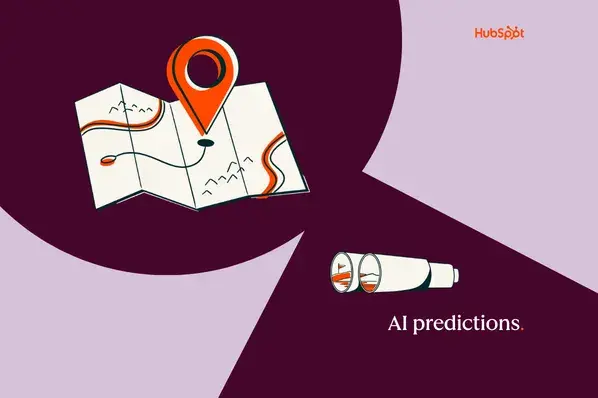AI can mimic voices, take orders, and even argue it’s human—but it still can’t build trust the way a real person can.
“We are rushing to automate relationships that still require what only a human can do, like empathy, caring with a human heart and mind.”
This email was sent to my friend and co-author, Jeb Blount. We had just written a book explaining why it would be a mistake to allow artificial intelligence to write emails and make phone calls. Both of us are sensitive to interactions with AI without a handler. This may not seem like a problem now, but it is still early days in the era of AI, and many organizations are working to replace humans in many tasks.
AI Customer Experience Failures Hurt Brand Loyalty
Every week, my phone rings with an AI to see if I have Medicare Parts A and B. I am not nearly old enough to be eligible for these government benefits. When I try to tell the AI my birthdate, so it can call me back many years from now, it responds that it cannot take that information. When I tell the AI that it is a robot, it responds that it is a real human being.
While this may seem an annoyance, it is a symptom of how inconsiderate AI can be. When AI is deployed and pretends to be a human, it does not care about the person it interacts with. The AI calling me about Medicare is not bothered by the fact that it cannot help me. It doesn’t care that it’s wasting my time, and it isn’t motivated to solve the problem that its user and I share—namely, removing me from its qualified prospects list. AI has no motivation or goals. It cannot think or engage in human interactions. It simply acts in accordance with its coding, stringing together words in the order it thinks makes the most sense.
AI Ordering Errors Drive Away Repeat Customers
My sister lives close to a great pizza parlor. It is a local business with one location near her house and another on the other side of the city. Most of the time, my sister picks up the pizza, but occasionally she has it delivered. Recently, she called the pizza joint to find that an AI was taking the order. She was hesitant, but placed her order for pickup. When my sister went to her local pizza shop to pick up her order, it wasn’t there. The person at the counter explained that the AI had sent her order to the other pizzeria location, and her food was miles away from her house. My sister no longer buys from this pizza joint, and she is probably not the only customer they’ve lost. The loss of a regular customer almost certainly signals the disappearance of other customers.
Even in a simple pizza order, the human element is important. For a hungry customer buying a pizza, the purchase is relatively low stakes. Sure, they might be hungry and inconvenienced, but that is a short-term problem. In complex B2B deals, the stakes are high, especially in enterprise-level pursuits. Buyers in these deals cannot afford to make a mistake. They also cannot afford for the AI sales bot to make a mistake.
Artificial Intelligence in Sales Can’t Replace Human Trust
I drove to New York to attend the first singularity summit on my birthday. The summit was hosted by Ray Kurzweil, an author, computer scientist, inventor, and futurist. The speakers included philosophers, scientists, and other people interested in AI, including one scientist who used technology to give sight to blind mice. A couple of days ago, the news suggested that scientists may be able to use a similar technology to give sight to people who are blind.
I do not doubt the potential benefits of AI in certain contexts, but it must be a tool used by humans rather than something that replaces them.
In the future, there will be companies that want to reduce their labor expenses in search of greater profits. They will seek to replace human beings with AI tools. For the last decade or so, sales leaders have dreamed of removing BDRs and SDRs and replacing them with AI. This change will lead to a client experience that cannot compare to that offered by a human being. People do not like dealing with AI, and forcing buyers to use an AI tool will be an immediate turnoff.
In this same future, there will be companies that provide their customers and clients with a human being. These will be the sales organizations that understand the value of a consultative approach. Humans can ask thought-provoking questions based on a conversation with a contact. Humans can relate with their contacts and offer them guidance that is reassuring and genuine. Even when an AI is programmed well, it does not care about a client or their results. It cannot talk about the person’s feelings honestly. Its responses will seem hollow and canned. This cannot give your contacts the support they need to make the right decision.
When it comes to B2B sales, replacing a salesperson with an AI bot will be a mistake, but many companies will care more about cutting costs than giving their clients a positive sales experience. Only experienced human salespeople can provide the clarity, confidence, and certainty of the outcomes buyers need to move forward with their decisions.
B2B Buyers Still Prefer Human Interaction Over AI
According to Salesforce.com, 86 percent of buyers prefer to interact with a human during their buyer’s journey. Sales organizations would do well to consider this and give their buyers the experience they want and need.
Using code to replace humans is certain to commoditize your company’s value. The future will not belong to those who attempt to automate trust. It will belong to those who earn that trust, person to person.




